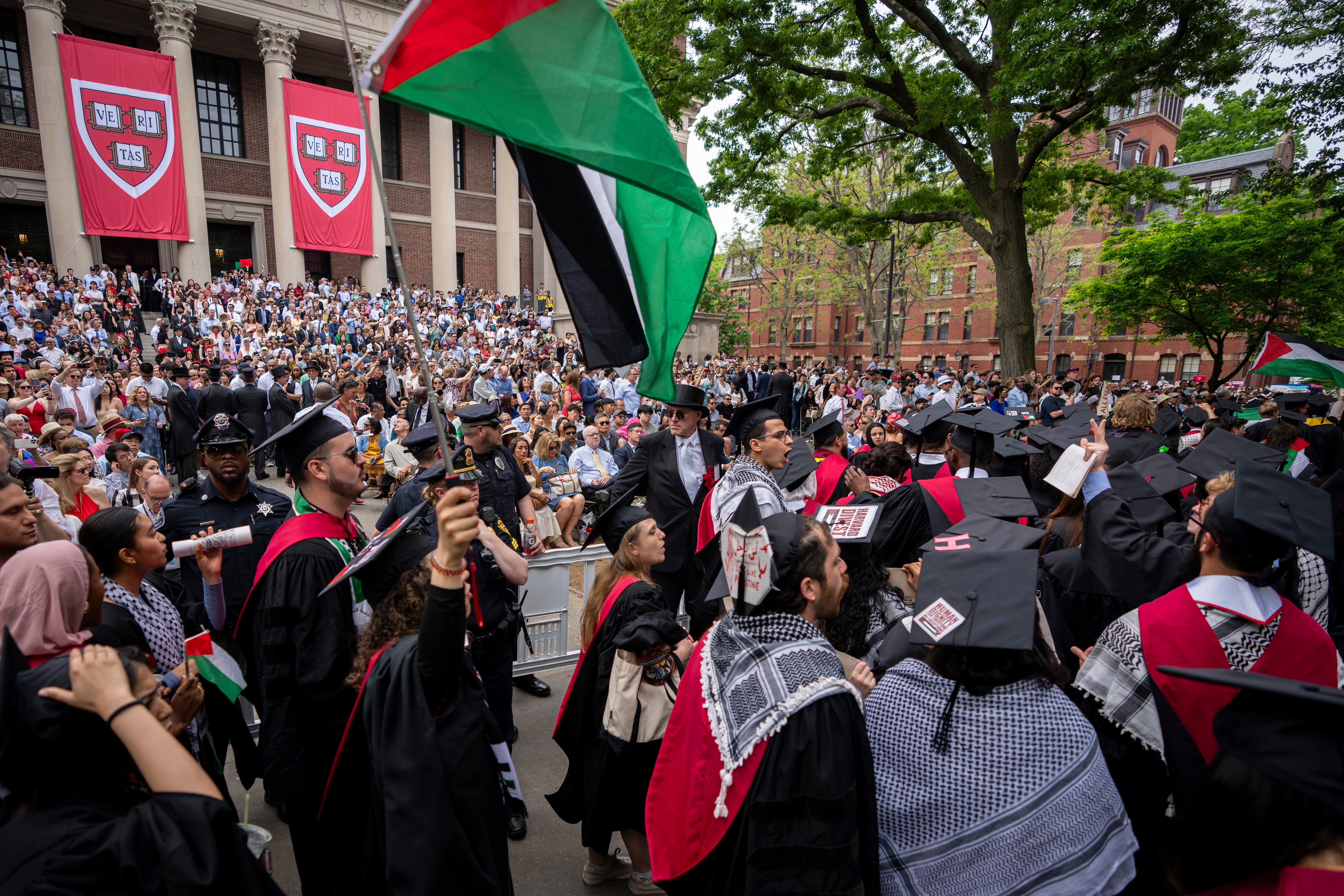Harvard temporarily suspends library privileges for faculty involved in 'study-in' protests
Students and faculty members at Harvard University have engaged in pro-Palestinian “study-in” protests at university libraries, as protests at other campuses nationwide have also begun to pull in teachers

In the latest wave of pro-Palestinian protests at Harvard University, students and faculty members have engaged in “study-in” actions at university libraries, as protests at other campuses nationwide have also begun to pull in teachers.
About two dozen Harvard faculty members who participated in an Oct. 16 “study-in” in support of students who had been temporarily banned from the library for holding a similar demonstration were themselves given two-week library suspensions, according to the student paper The Harvard Crimson.
The practice involves protesters silently reading materials related to free speech while propping up signs about dissent and University policy next to them or taped to the back of their laptops. Pro-Palestinian protests have roiled and divided Harvard and other campuses for much of the year.
Kerry Conley, director of communications for Harvard Library, said, “We do not comment on individual matters related to library access or privileges."
Faculty members were told their borrowing privileges from the library had not been affected and that they would still be able to access other locations in the library system. However, they would not be allowed inside Widener — the University’s flagship library, according to the Crimson.
The paper said library administrators charged faculty members with gathering in the library “with the purpose of capturing people’s attention through the display of tent-card signs," which administrators said violated library policies.
The group Harvard Out of Occupied Palestine said the school issued library suspensions to more than 60 Harvard Law School students for a similar pro-Palestinian study-in.
In response, the group said more than 50 additional students, faculty, and staff joined a study-in Thursday to speak out against what protesters have described as Harvard’s “complicity in Israel’s genocide in Palestine and campus repression.”
Thursday's study-in is the fourth of the semester, activists said.
During last week's protest, students, many wearing keffiyeh scarves, studied quietly in the library’s reading room with papers taped to their laptops displaying messages like “FREE PALESTINE” and “HARVARD DIVEST FROM DEATH," according to the group.
Dr. Karameh Kuemmerle, an assistant professor of medicine at Harvard Medical School, participated in the protest, according to a press release from protest organizers.
“What was meant to be a quiet hour of studying meaningful texts with colleagues, in an undisruptive form of solidarity against the genocide of my own people, has instead been — in shamelessly bad faith — characterized as an immature attempt to seek attention,” Kuemmerle said. “Silence in the face of genocide in Palestine is deadly. Harvard chooses to silence us.”
University Librarian Martha Whitehead said in an essay that libraries “are deeply committed to upholding the rights of all members of our communities.”
“An assembly of people displaying signs changes a reading room from a place for individual learning and reflection to a forum for public statements,” she wrote. “If our library spaces become a space for protest and demonstration – quiet or otherwise, and no matter the message – they will be diverted from their vital role as places for learning and research.”
Bookmark popover
Removed from bookmarks